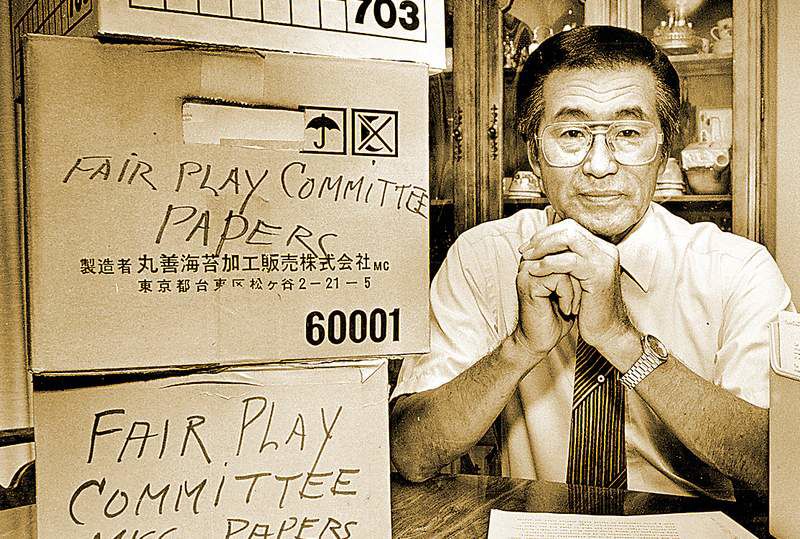Opponent of draft of interned Japanese Americans dies at 94
Published 4:00 am Friday, December 10, 2010

- Frank Emi, a Japanese American, pictured in Los Angeles on Sept. 13, 1987, was sent to an internment camp during World War II. After refusing to serve in the U.S. Army, Emi was sent to prison at Fort Leavenworth. He has died at the age of 94.
LOS ANGELES — After the Japanese attack on Pearl Harbor 69 years ago, Frank S. Emi, a Los Angeles grocer, was among the thousands of law-abiding Japanese Americans on the West Coast who were regarded as threats to national security. They were herded by federal authorities to the interior of the country, where they spent the rest of World War II living under armed guard in remote detention centers and camps.
When the federal government decided in early 1944 to reopen the draft to Japanese American men in the camps, Emi joined six other Heart Mountain internees to oppose the order. They formed the Fair Play Committee, an ad hoc group that dared to ask how they could be ordered to fight for freedom and democracy abroad when they were denied it at home.
Trending
Emi, the last surviving leader of the group, died Dec. 1 at Citrus Valley Hospice in West Covina, near Los Angeles, said his daughter, Kathleen Ito. He was 94 and had a number of ailments related to old age.
The Fair Play Committee was responsible for the only organized draft resistance effort in the camps. Their defiance resulted in the imprisonment for draft evasion of 300 men from 10 camps. The seven leaders of the movement were convicted of conspiracy to violate the Selective Service Act. Emi — who had a deferment because he was married and had children — served 18 months at the federal penitentiary at Leavenworth, Kan.
Among his Nisei generation, the heroes were the men who fought in the 442nd Regimental Combat Team, a highly decorated unit made up mainly of Japanese Americans, many of whom had families in the camps. The resisters, on the other hand, were maligned as draft dodgers and traitors.
The Japanese American Citizens League, the community’s leading civil rights organization, had called for them to be charged with sedition, a wartime stand that caused decades of internal debate, which culminated in a formal apology to the resisters in 2000.
Emi was born in downtown Los Angeles on Sept. 23, 1916. When he was about 4, his family moved to the San Fernando Valley, where they started a farm and later a produce market.
After the war, Emi led a quiet life as a civil servant, working for the postal service and later for the state unemployment office. He also was a highly respected senior teacher with an eighth-degree black belt at the Hollywood Judo Dojo.








